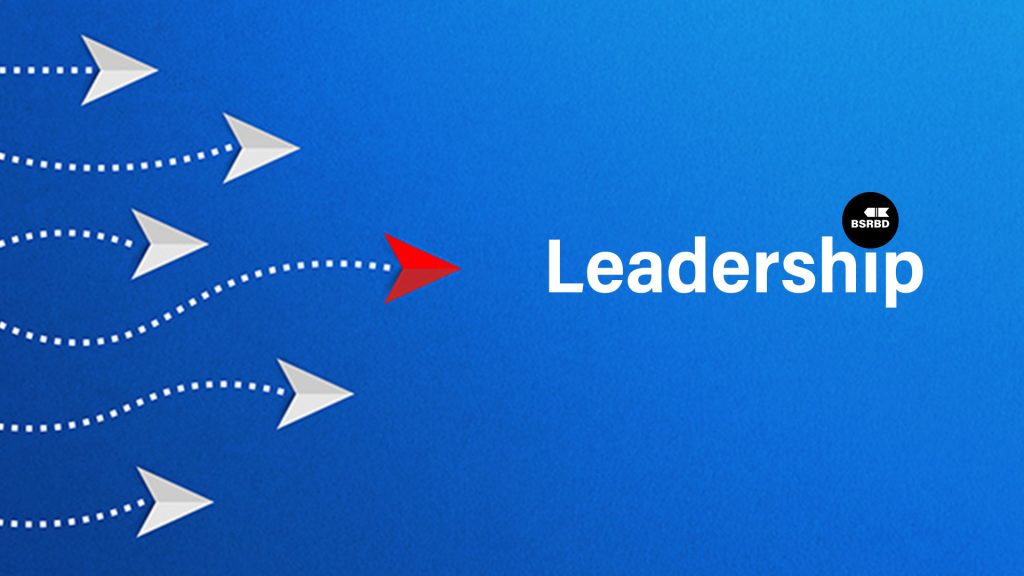Summary: Traditional models are still relevant for leaders. Nowadays, being the smartest person in the room or being driven by power, fame, glory or money is not appropriate. The nature of work has changed towards mechanization. Repetitive work requires both work and creativity.
When I was young, I thought that good leaders knew everything. I also thought that being smart and showing others what you can do was very important. I believed that the best schools made the best leaders. I wanted to be successful by having power, fame, glory, and money. I admired some business leaders like Jack Welch from GE. He was famous for his intelligence, his plans, and his toughness. He made me want to be like him: a genius who never gives up.
I can help you rewrite this paragraph with simpler words and correct grammar and punctuation. Here is my attempt:
The old way of leading is not good for today. Everyone knows that being the smartest, the most powerful, the most famous, the most glorious, or the richest is not right for today’s world. This is because:
Today’s world changes fast, is complicated, and is hard to predict. We need a different kind of leader. No one can say they know everything or can solve everything. The problems we face need many people to make decisions together.
The idea that a company’s only goal is to make money is not attractive anymore. A leader who only cares about money is not liked.
More and more workers want leaders who are real and care about them. They don’t like leaders who act like they are perfect and better than everyone else.
The kind of work we do has changed. We don’t do boring work that machines can do. We do work that needs thinking and creativity.
Leaders who are successful can start to think that they are so great that no one can touch them or hurt them. They can be tempted by power, fame, glory, and money. They can lose touch with their co-workers and with reality.
People today want a different kind of leader. Every company needs to decide what kind of leader they want. But I want to share the idea we use at Best Buy. We are changing and doing better. Our idea is based on five things—the five “Bs”—that I think make some leaders very good at their work.
Many workers have left their jobs in the last few months. This has made people think a lot.
Before Covid-19, people saw how important it was to have a reason to work for themselves and for their company. I have written about different parts of this reason, how to find it, and why it is very important. It also makes the company’s goals more alive and exciting. Leaders need to be clear about their own reason and the reason of the people around them.
Corie Barry, the CEO of Best Buy, who took my place, told me that her personal reason is to make things better than when she found them. That means her company. She tries to make life better with technology by connecting it to her mission. Every day, she keeps her connection to that reason and asks herself if things at Best Buy were a little better that day because she was there.
It is important for leaders to know what makes the people around them work. Recently, a CEO who I help; His team members felt that they worked mainly to make their own areas better rather than the whole company. Together, we realized that he knew his own reason and his company’s reason well, but he didn’t know much about what made those around him work. Without that knowledge, he couldn’t help them connect their reason with the company’s reason. And he couldn’t make all the team members work together well.
Be clear about your position
A leader’s main job is to make people feel excited and ready, especially when things are bad. It is to help others see possibilities, strengths, and motivation and make hope. I would not have believed this idea 30 years ago, but this is the most important job of a leader who has a reason. As Dolly Parton said well: “If your work makes others dream more, learn more, do more, and be a leader.”
When Covid-19 was very bad, Marriott CEO Arne Sorenson who died later made a video for his workers called “DO”. He first said he cared for the workers who had the virus. He then said that Covid-19 was hurting Marriott’s business of hosting people and the company was trying to deal with it. He was clear and calm. In the end, he talked about his reason and ended with a hopeful note about China getting better from Covid-19. He said people will travel again one day. His message was honest, kind, and touching while also being positive and inspiring.
You can’t change what happens, but you can change how you think. How you think decides if you make people around you feel inspired and excited or make them feel down. So, choose well. I remembered this every morning when I worked at Carlson. There was a statue of Kurt Carlson, who started the company, in the lobby of the company’s building. It had the Latin words Illegitimi non carborundum on it, which means “don’t let bad people break you.”
In general, your job as a leader is to make power for the reason that makes others better in the company’s way of doing things. For example, Netflix under Reed Hastings has made a way of doing things that want to entertain the world as a company. “Freedom with responsibility” which cares more about people than rules and more about new things than fast things has done better than expected and made growth and new things.
Be clear about who you are serving these things to
Note: It’s not you
A very important part of leading with a reason is to say it well and to have good people around you in your job. As a leader, you have to serve people from the front while doing business. You have to serve your co-workers. You serve your board members. To serve the people around you, you have to know first what they can do and help them do their best.
In fact, treat every person like a customer. How you treat people who work for airlines or restaurants will affect how they treat you. This is a lesson a top boss at a company where I worked learned the hard way. He was stuck at an airport after his flight was stopped. He got angry while waiting in line to go back to the service desk and went to the front of the line. He said very rudely to the man behind the desk, “Do you know who I am?” The airline worker asked the people in the line and said, “Ladies and gentlemen, I need your help. This man doesn’t know who he is!”
You need to be careful and know yourself well to avoid falling into the trap of power, fame, glory, and money. Before you talk or act, be clear about why you are doing it and who you are trying to serve. I once told the bosses at Best Buy, “If you think you are serving your boss or the CEO of the company, that’s OK—that’s your choice,” “But then you shouldn’t work here. You should work for the customer.” This meant that there was no room at Best Buy for people who only cared about themselves. Some leaders think that their egos will help them their whole careers. But my friend Jim Citrin, who helps find CEOs for Spencer Stuart, said something smart: “The best leaders don’t get to the top by stepping on others, they lift others to the top.”
Drive yourself by values
When I worked for McKinsey at the start of my career, I asked some of my bosses for leadership advice. One of them advocated for the importance of speaking the truth about what is morally correct and then taking actions aligned with that truth. Most of the time, we all agree on what is right: honesty, respect, responsibility, fairness, and kindness. Every company has good values on paper. But it is not enough to have values on paper. Values are about doing the right thing, not just saying or knowing what is right. A leader’s job is to follow these values, say them clearly, and make sure they are part of the business.
Johnson & Johnson, for example, is famous for its belief, first written in 1943 by the son of the person who started the company. Its first sentence says: “We believe our first duty is to the people who use our products and services, like patients, doctors and nurses, mothers and fathers and everyone else”.
The company’s decision in 1982 to quickly stop making Tylenol, one of its products that sold well, and to take back all 31 million bottles that had already been sent all over the country, shows how company leaders followed their belief. The decision was made after some people in Chicago died after taking pills that had poison in them. The taking back was expensive in a short time, but it is remembered as a good example of leadership and dealing with problems.
Of course, doing what’s right is not always easy, especially when things are bad and there are many things that can make us forget our values. Harry Kramer, a teacher of leadership at Kellogg and a boss with a money company called Madison Dearborn, says a leader has to really believe that they are going to do the right thing. And they are doing their best. If you trust them and have people around you who trust you and the company, you don’t have to figure out what to do in every situation. You can do better if you work with them to find the right things together.
Being driven by values means knowing when to leave when you don’t agree with your place, whether it’s your co-workers, your boss, your board, or your company’s values and goals. As the saying goes, have the wisdom to know the difference between what you can and cannot or should not change.
Be yourself
When I left Best Buy in 2020, I sent an email and made a goodbye video for our top leaders, board members, and all company workers. The email said, “I love you”. I said the same thing to the workers in the video. I have always thought that many leaders, from my time, don’t share love in the business. I have been told that the longest trip you can take is from your head to your heart. It is 18 inches.
It has been a very long and hard trip and it has taken me all my life (and the hardest thing I have ever done) to “do” be yourself, be your real self, be your whole, best self be open, be real. Being open and real doesn’t mean you do everything your co-workers want. For leaders, it means sharing love and problems when it is right and helping others.
Many of us had to work from home on video. In the last two years, we have shown our whole selves – kids, dogs, cats, wifi problems, etc. It has not always been easy or comfortable but we all got to see each other in a new way, as whole people. Workers want leaders to be good people too. This starts with being open, saying what we don’t know. Brené Brown says that being open is how we connect with others and connecting with others is how we do business.
The way we work and how we do business affects the people around us. We can’t change companies, and business in general, unless we think about ourselves as leaders and these questions:
What kind of leader do you want to be?
How would you say your reason?
How would you say your job?
What are you doing to make a place where others can do well?
Who are you serving?
What values do you have?
Are you easy to talk to and open while trying your best to be real?
So, start with yourself. Be the leader you want to be. Change the way you want to see yourself.
Author: Hubert Joly is the former boss and head of Best Buy, a teacher at Harvard Business School, and a writer, with Carolyn Lambert, of The Heart of Business. He has been named one of the Top 100 CEOs by Harvard Business Review and one of the top 30 CEOs in the world by Barron’s. Joly now wants to use his voice and his energy to change business and make business about people.









